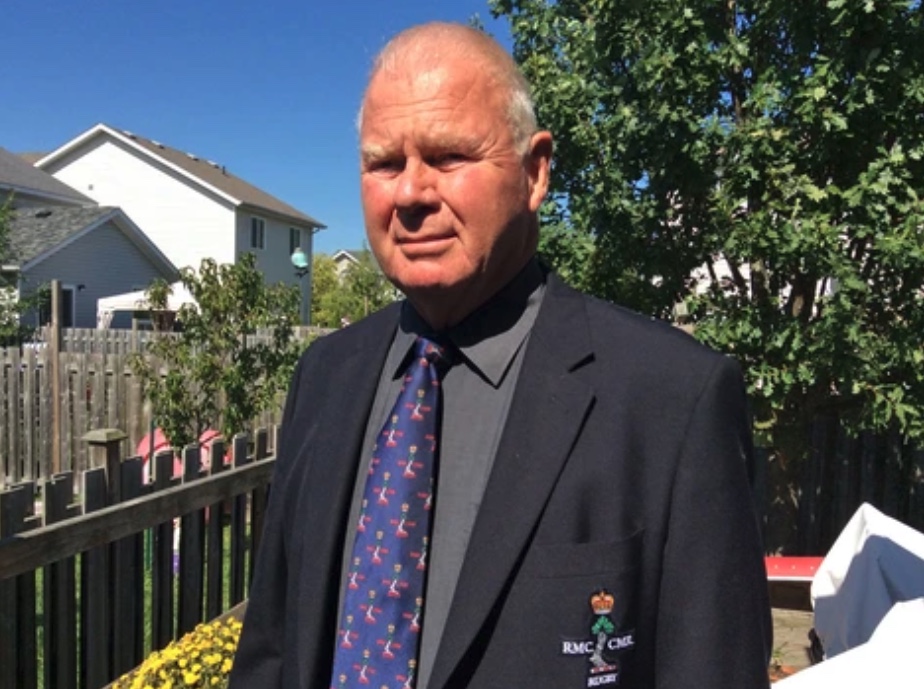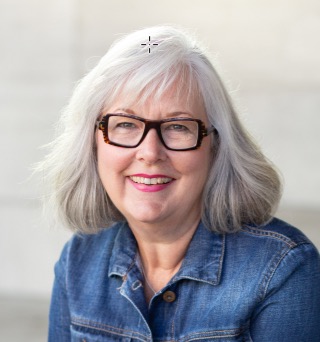Dishing with DKG: Analysis: Canada 'naked' against threats to our Arctic region
Dishing with DKG: This is a new conversation series by Donna Kennedy-Glans, a writer and former Alberta cabinet minister, featuring newsmakers and intriguing personalities.
This week: military thinker David Harries.

“We’re gambling that what we don’t know and can’t do won’t matter,” former Canadian Airborne Regiment commanding officer David Harries says about Canada's lack of military spending.
Photo by Gail Coady
Canada’s Northwest Passage soon will be open to year-round navigation. Russians are building nuclear-powered icebreakers for their north. Putin has partnered with the Chinese, who fancy themselves a “near-Arctic” nation. Interest in the North is literally ballooning of late.
How prepared is Canada to defend our northern frontier?
“We’re naked,” declares David Harries, the perfect military insider, now mostly on the outside.
A nuclear engineer by training, Harries spent his career in Canada’s military — including a stint as commanding officer with the Canadian Airborne Regiment when it was based near Edmonton. The unit decamped to Petawawa, Ont., but while in Edmonton, the mission was flying Hercules planes for search and rescue into the Arctic and teaching soldiers how to jump out of planes and survive in the Far North.
When we connect virtually, Harries looks like a weathered soldier sitting tall at his home in Kingston, Ont. He’s ready to rumble. And it’s not difficult to imagine Harries, as he says, “falling out a Hercules, after a bulldozer, in the dark, in the Arctic, to build a runway.” Retired but still in the game, Harries coaches the Royal Military College’s men’s rugby team. He’s also active in several global associations, including the World Academy of Art and Science and the Canadian Pugwash Group, fellow experts who care about global security.
Leaning far forward into his iPad screen, he conveys a contagious sense of urgency: “If the American system believes that America is threatened, America will do what it wants to get at the threat. Legally and diplomatically, they have the right to under Norad (North American Aerospace Defence) and NorthCom (U.S. Northern Command). Absolutely. If we’re not ready or can’t get there in time, America will tell Canadians, we have this threat.”
This idea of shared responsibility for Arctic defence isn’t new. The Second World War laid the groundwork for a continental security pact. Then, the U.S. had no qualms stationing formidable numbers of its military in Canada to punch a road through the wilderness to Alaska, using Edmonton as a staging ground to build the Alaska Highway.
Since then, Canadians’ appetite for defence spending has waned. We now spend roughly 1.4 percent of our GDP on defence; in 1960, that number was 4.2 percent.
Does anyone care that Canada relies on Americans to come to our defence? Justin Trudeau knows that voters aren’t really interested, Harries asserts, “And I don’t see anyone who worries that it’s the Americans who show up.” It’s a strategy that’s saved us a lot of money. But we’ve lost reputation. Other countries know we’re not very serious about being a military nation.
“Gambling. That’s what comes to mind,” he mutters in a low voice. Leaning far back in his chair, he elaborates: “We’re gambling that what we don’t know and can’t do won’t matter.”

We have a country that has given Ukraine more military resources in a year than it’s given the Canadian forces in the last decade.
Photo by Lars Hagberg/Reuters
We’ve been lucky so far. Harries’ realpolitik is jarring. Why would the American military be OK with this arrangement?
“My view is that the Americans are in a state of panic about the North,” he replies. “They are so far behind the Russians …. the Arktika (a Russian icebreaker) launched two years ago, is as big as the Queen Mary, has two nuclear reactors, it can do anything.”
He asks himself a question: "Does that mean the Americans are going to go to their strength, nuclear submarines, to make sure they are present?" He ponders the thought, then concludes: “Americans are so tied up with catching up, they aren’t pushing us as their ally country with the second-longest Arctic coastline in the world and they know very well the problems our military has. Under-funded, under-peopled, under-equipped, culturally troubled and unsupported by the PM and his cabal. I don’t think they would push us, out of professional courtesy.”
It all feels so fragile. Canada’s minister of National Defence, Anita Anand, seems capable; can’t she get us back on track?
“You heard what General Eyre (Chief of Defence Staff) said,” Harries responds. “When asked … are the Canadian forces ready for what’s happening, he said ‘No, I lose sleep at night about them not being ready.’” We have a country that has given Ukraine more military resources in a year than it’s given the Canadian forces in the last decade.
The world has changed a lot, we agree. And the balloons that so captured our attention a few weeks back are a signal to us, to wake up.
Harries leans into his screen with one last story: “I was at RMC yesterday having a meeting with Athletics about rugby issues. God. The new dress rules. There are no dress rules. You can wear what you want. If you are a male, you can wear a RMC skirt if you want. If you want to colour your hair, you can colour your hair. There are no rules on hair anymore. If you want tattoos on your face, you can tattoo your face. This is all in the interest of diversity and human rights. I can tell you what our allies think of this.”
Canada may not be prepared for what’s next, but we’re woke.
Link to original article: National Post
